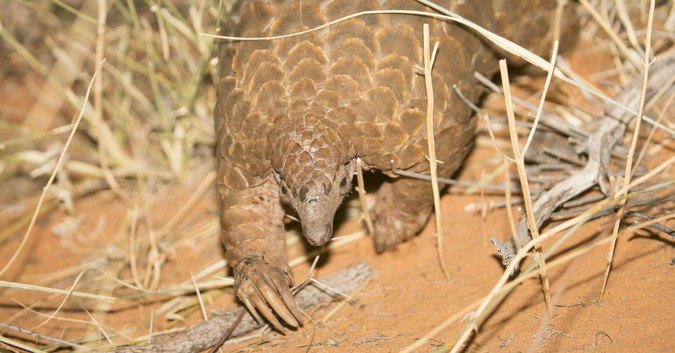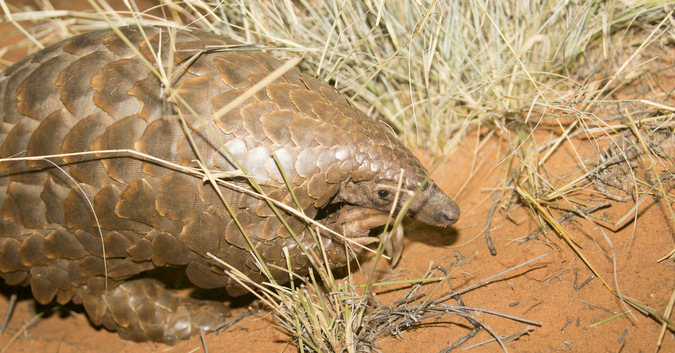
A recent study has revealed that pangolin smugglers are constantly opening up new global trade routes every year to avoid law enforcement agencies.
In light of the recent, world’s largest, pangolin seizure where 11.9 tonnes of scales were confiscated from a ship in Shenzhen, China, the new research highlights the challenge of tackling the trade of the world’s most trafficked mammal.
Released by the wildlife trade monitoring group TRAFFIC and IUCN on Friday, the comprehensive analysis reveals that an average of 20 tonnes of pangolins and their parts have been trafficked internationally every year, with the smugglers using 27 new routes for their illegal trade every year. Smuggling networks have become highly mobile and adaptable to shifting and creating new routes.
All eight pangolin species (four Asian and four African) are prohibited from international trade under CITES. However, this has not stopped the poaching of this mammal where, between 2010 and 2015, a combined minimum of 120 tonnes of whole pangolins, parts and scales were confiscated by law enforcement agencies involved with cross-border seizures.
“This paints a grave picture of a phenomenal quantity of pangolins being trafficked and very nimble traffickers who adapt fast, likely in response to enforcement actions,” said Kanitha Krishnasamy, Acting Regional Director for TRAFFIC in Southeast Asia. “It shows traders are indiscriminate about the new routes they choose and any legitimate means of transport is fair game for them to exploit.”
The findings show that 67 countries/territories were implicated with the recorded 1,270 cross-border pangolin seizures.

China was the most common destination in terms of large-quantity shipments of pangolin scales while whole pangolins were mostly traded within Asia, with Indonesia seizing the largest volume during the six-year period of the analysis. Minor shipments of pangolin body parts mainly went to the U.S., however, the quantities entering the U.S. were not comparable to the massive shipments trafficked through Africa and Asia.
“This report highlights again the alarming global nature of trafficking in pangolins and their parts, and is particularly concerning because it shows that trafficking takes place through highly mobile networks that use shifting trade routes,” says Daniel Challender, Chair of the IUCN SSC Pangolin Specialist Group and an author of the report. “Concerted action is needed along the entire trafficking routes identified to ensure illegal trade no longer poses a threat to pangolin populations.”
The report urged all countries implicated to review laws and increase vigilance of pangolin trafficking, in particular those countries with low numbers of seizures, but implicated in many trafficking incidents.
The full report: TRAFFIC, S. Heinrich, T. A. Wittman, J. V. Ross, C. R. Shepherd, D. W.S. Challender, P. Cassey: “The global trafficking of pangolins: A comprehensive summary of seizures and
trafficking routes from 2010–2015”
To comment on this story: Login (or sign up) to our app here - it's a troll-free safe place 🙂.![]()






